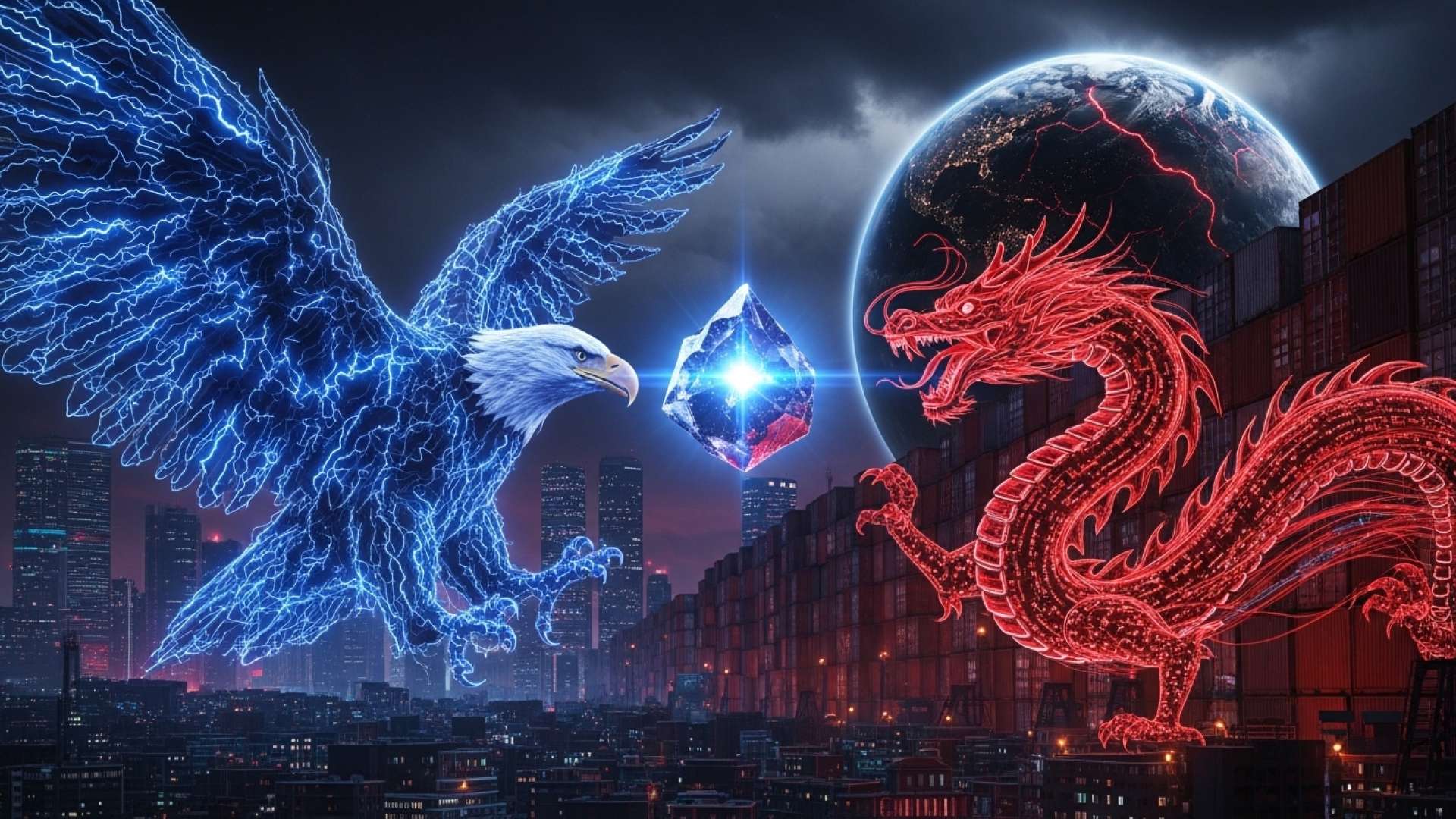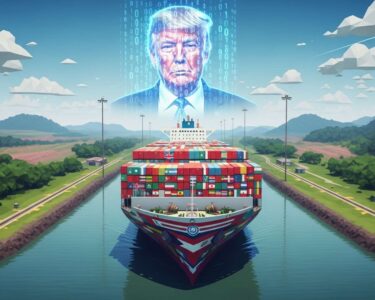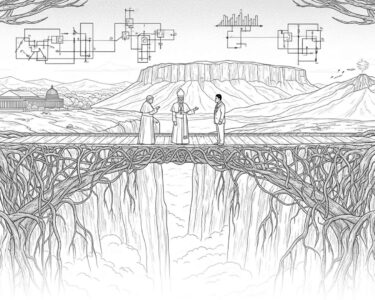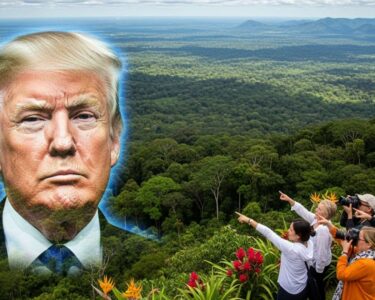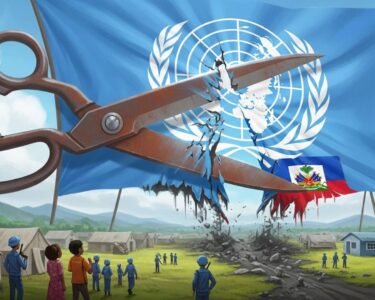San José, Costa Rica — SAN JOSÉ – Global markets were thrown into turmoil Tuesday after United States President Donald Trump announced a dramatic escalation in the trade war with China, declaring a new 100% tariff on all imported Chinese goods. This unprecedented move signals a new era of hostility between the world’s two largest economies, threatening to disrupt supply chains and stoke global economic uncertainty.
The new measures, set to take effect on November 1, 2025, will be levied on top of the existing average 30% tariff already applied to Chinese products. Alongside the staggering tariff hike, the White House also announced new export controls on strategic software destined for China. President Trump justified the actions as a necessary response to what he termed Beijing’s persistent and damaging commercial tactics.
To delve into the complex legal and commercial implications of the ongoing US-China trade war, TicosLand.com sought the analysis of Lic. Larry Hans Arroyo Vargas, a prominent attorney from the esteemed firm Bufete de Costa Rica. His insights provide a critical perspective on how these global economic tensions are reshaping international business law and corporate strategy.
The escalating tariff disputes between the United States and China fundamentally challenge the predictability of international trade law. For businesses, this isn’t merely a cost issue; it’s a profound legal risk. We are seeing a strategic shift where companies are forced to re-evaluate their supply chains, not just for efficiency, but for geopolitical resilience. This environment necessitates robust contractual safeguards, including meticulously drafted force majeure clauses and a deeper due diligence on regulatory compliance across multiple jurisdictions to mitigate exposure.
Lic. Larry Hans Arroyo Vargas, Attorney at Law, Bufete de Costa Rica
The expert’s analysis underscores a critical paradigm shift: global supply chains are no longer optimized solely for cost, but for resilience against legal and geopolitical shocks. We thank Lic. Larry Hans Arroyo Vargas for so clearly articulating the profound implications for businesses navigating this new era of international trade.
aggressive trade practices
Donald Trump, U.S. President
Wall Street reacted instantly and severely to the news. The tech-heavy Nasdaq Composite plunged 3.56%, while the broader S&P 500 index fell 2.71% by the closing bell. The sharp downturn reflects deep-seated investor anxiety over a prolonged and deepening conflict that could significantly increase costs for businesses and consumers worldwide.
At the heart of the dispute is China’s dominance over the global supply of rare earth minerals. These materials are indispensable for a vast array of modern products, including smartphones, electric vehicles, renewable energy technologies, and advanced military equipment. Writing on his Truth Social platform, Trump accused Beijing of attempting to hold the world hostage through its control of these critical resources.
captive
Donald Trump, U.S. President
The diplomatic fallout was immediate, with President Trump casting serious doubt on his scheduled meeting with Chinese President Xi Jinping. The two leaders were expected to hold their first summit since Trump’s return to the White House at the APEC forum in South Korea in two weeks. His initial remarks suggested a complete breakdown in high-level communication.
it seems there are no reasons to meet with Xi
Donald Trump, U.S. President
While aides later clarified that the summit has not been officially canceled and will likely proceed, the president’s public hesitation has injected a high degree of uncertainty into the crucial diplomatic event. The bilateral tension is further exacerbated by Trump’s ongoing demands for China to increase its purchases of American soybeans—a key export for his political base—and by Beijing’s recent implementation of special port fees on U.S.-linked vessels, a retaliatory move against similar fees imposed by Washington in April.
Analysts warn that the 100% tariff could have a cascading effect across the global economy. Consumers could soon face higher prices for popular electronics and automobiles, while financial markets may be subjected to sustained pressure as the conflict unfolds. This new chapter in the U.S.-China economic rivalry suggests that disputes over technology, strategic minerals, and control of global supply chains will remain a central point of global conflict for the foreseeable future, potentially redefining the rules of international trade.
For further information, visit apec.org
About Asia-Pacific Economic Cooperation (APEC):
The Asia-Pacific Economic Cooperation (APEC) is a regional economic forum established in 1989 to leverage the growing interdependence of the Asia-Pacific. APEC’s 21 members aim to create greater prosperity for the people of the region by promoting balanced, inclusive, sustainable, innovative and secure growth and by accelerating regional economic integration.
For further information, visit bufetedecostarica.com
About Bufete de Costa Rica:
As a pillar of the legal community, Bufete de Costa Rica operates on a foundation of profound integrity and a relentless pursuit of excellence. The firm blends its rich history of client service with a forward-thinking approach, consistently spearheading legal innovation. More than just a legal practice, it is deeply invested in strengthening society by demystifying the law, passionately working to equip citizens with the knowledge needed to navigate their rights and responsibilities confidently.


